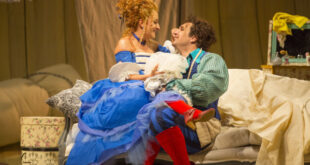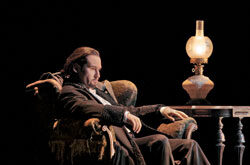In nearly 30 years of reviewing opera for this and other columns, never have I been so carried away by the euphoria of experiencing this great art being professionally performed. But the other night, Aass I listened to Mozart’s brilliant overture, played by a group of first-class musicians, I was struck by how lucky we are to have the Chicago Lyric Opera to go to for performances of opera at the highest artistic level. Oh, sure, there’s room for criticism — mainly that Mozart scored the roles of Figaro and the Count for basses, and the Lyric used baritones, …
Read More »“Le nozze di Figaro”
The Mozart-da Ponte “Le nozze di Figaro” (1786) is the oldest opera in the standard repertoire. In other words, it is the first “modern” opera. Before “Figaro,” opera was one thing, afterward it was another. Why is this? As Mozart was coming of age, the European political pot was coming to a rapid boil. The American Revolution was just on the horizon, and the social unrest that would explode into the French Revolution was simmering everywhere. Mozart was not what you would call a political radical or a revolutionary, but he was definitely a man of his times. The biggest …
Read More »“Don Giovanni” review
“Dramma giocoso.” That’s what the man said. We have noted previously that Mozart’s “Don Giovanni” is the “Hamlet” of opera, meaning that there has been more criticism and analysis of this work than any other of its kind. And most of the writing stems from this “dramma giocoso” deal. Literally translated it’s a paradoxical phrase. “Dramma” means serious or tragic and “giocoso” means comical or funny. Italian playwright and librettist Carlo Goldoni coined the term in the mid-18th Century for works of his that had character types from both “opera seria” (tragic, or serious opera) and “opera buffa” (comic opera) …
Read More » Fra Noi Embrace Your Inner Italian
Fra Noi Embrace Your Inner Italian


